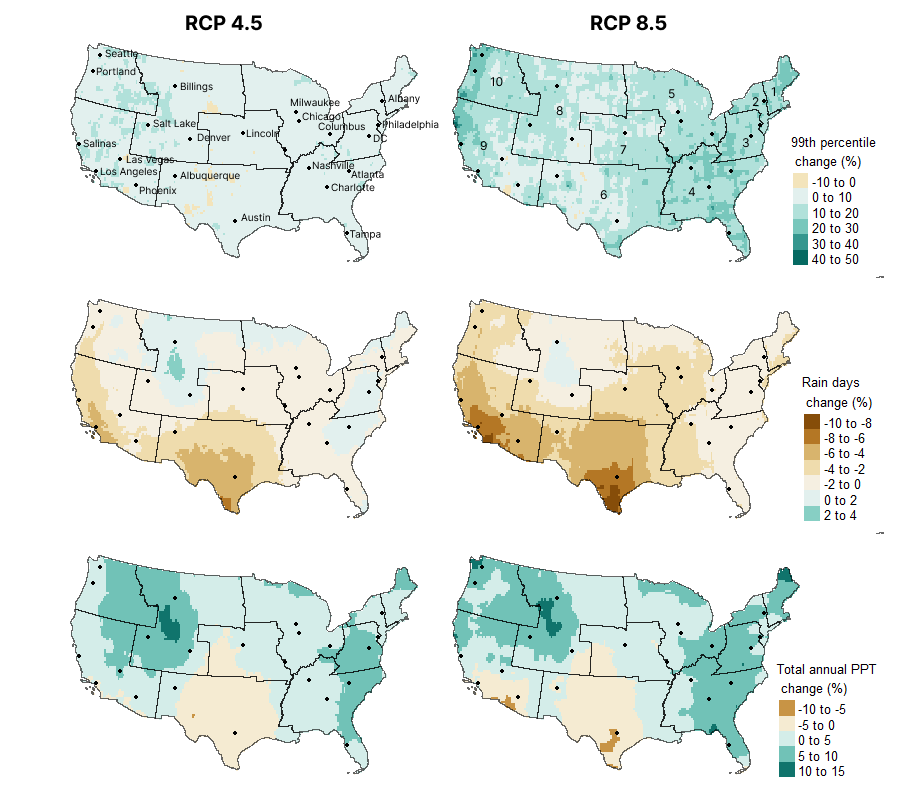With climate change amplifying storms and jeopardizing our infrastructure’s stability, it’s crucial to rethink urban stormwater management practices. Our newest peer-reviewed research, published in Nature, Scientific Reports, sheds light on the future implications of stormwater runoff in cities, emphasizing the urgent need to reassess current strategies to confront forthcoming challenges. The study’s authors include Tyler G. Nodine, Gary Conley, Catherine A. Riihimaki, Nicole Beck from 2NDATURE, and our esteemed partner Craig Holland from The Nature Conservancy.

Merging Research with Practical Application
Through advanced modeling, we have projected changes in runoff patterns in various U.S. cities under diverse climate scenarios. Our methods and climate data align closely with the Intergovernmental Panel on Climate Change (IPCC), the leading authority on climate impacts. The results indicate an anticipated rise in stormwater runoff in most cities due to more intense rainfall, posing threats to urban stream ecosystems and escalating local flood risks. An inevitable outcome of these changes is the heightened discharge of stormwater pollutants into water bodies, highlighting the pressing requirement for resilient stormwater management practices.
Toward Sustainable Solutions
Integrating green stormwater infrastructure (GSI) into urban planning emerges as a pivotal approach for sustainable and efficient runoff management. Incorporating climate projections into GSI planning ensures the capacity to handle increased runoff volumes. Utilizing high-resolution GSI planning tools enables the alignment of stormwater treatment controls with location-specific runoff responses. These tools assist industries in optimizing climate change mitigation strategies and identifying stormwater management opportunities.
A Call to Action
This research emphasizes the necessity of proactive adaptation in stormwater management to mitigate heightened flood risks, water contamination, and water scarcity nationwide. By embracing innovative solutions and sustainable practices, we can shield our urban landscapes from the adverse impacts of climate change.
The stormwater community plays a vital role in shaping our cities’ future. Let’s advocate for policy reforms to bolster investments in resilient infrastructure and equip ourselves with the tools needed to safeguard our communities and ecosystems against the escalating threats posed by climate change.


